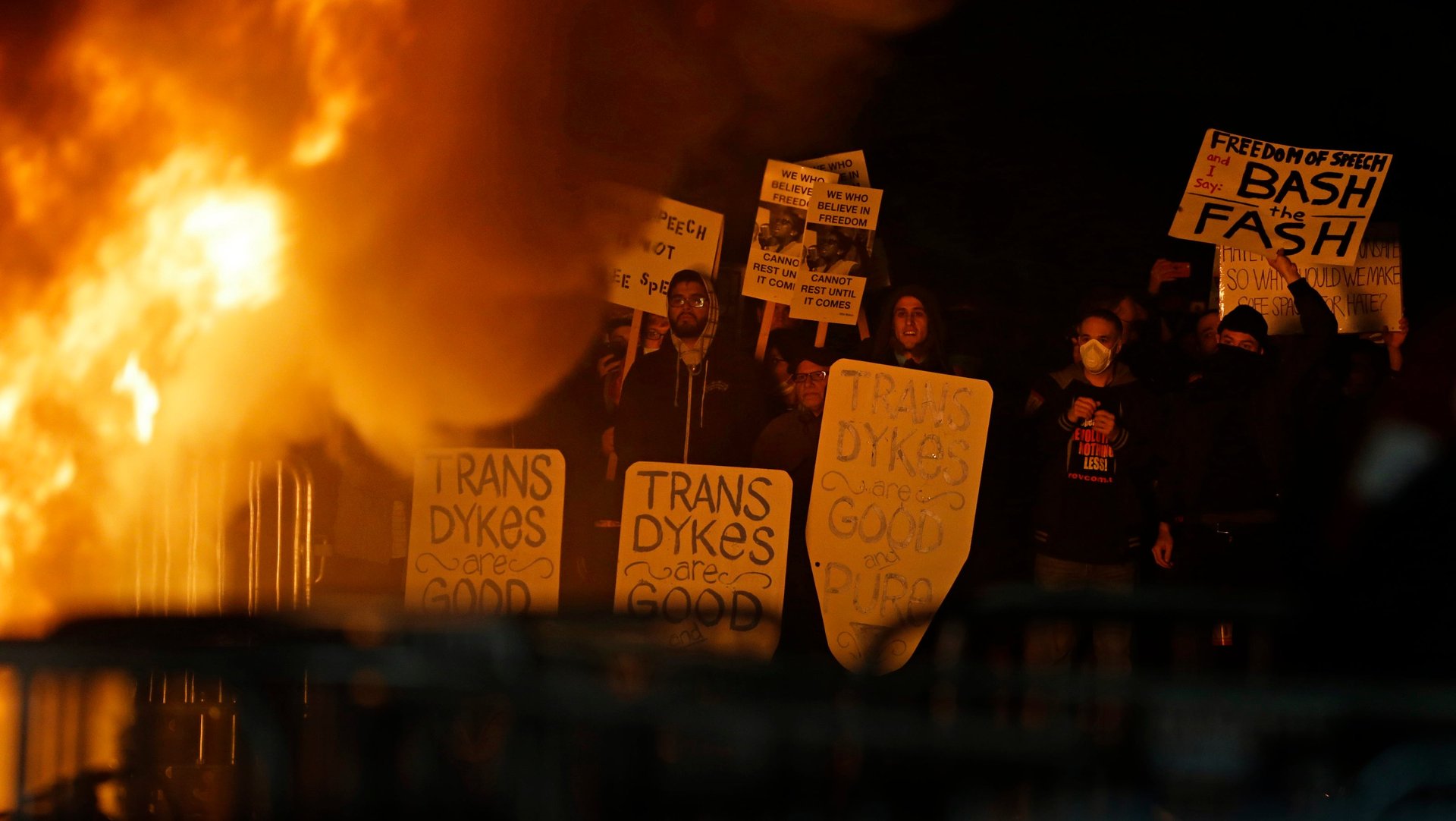Trump is picking a free-speech fight with the university that birthed the Free Speech Movement
Darkly theatrical was the scene at the University of California-Berkeley last night, where a crowd of more than 1,500 gathered to protest the appearance of controversy-riddled alt-right leader Milo Yiannopoulos. Agitators threw fireworks and rocks at police. Molotov cocktails made generator-powered spotlights burst into flame.


Darkly theatrical was the scene at the University of California-Berkeley last night, where a crowd of more than 1,500 gathered to protest the appearance of controversy-riddled alt-right leader Milo Yiannopoulos. Agitators threw fireworks and rocks at police. Molotov cocktails made generator-powered spotlights burst into flame.
UC Berkeley canceled Yiannopoulos’s speech, evacuating him from campus amid safety concerns. The provocative figure—a Breitbart editor currently embarking on his “Dangerous Faggot” tour of college campuses and the founder of a newly opened scholarship for white male students only—was invited to the school by a group of student Republicans, and campus police knew to expect protest activity. Despite rampant violence, no arrests were made.
This morning, US president Donald Trump—who has Breitbart executive chairman Steve Bannon as his chief strategist, and whose success in the November election is partly owed to the alt-right movement that Yiannopoulos helped spearhead—decided to weigh in:
Putting aside the question of whether it’s appropriate for Trump to defend Yiannopoulos, can the president actually pull federal funding from a university over a single student protest? Short answer: Not at all.
While UC Berkeley is a public university that receives money from the federal government, the government cannot randomly revoke funds from public institutions as it sees fit—only if they actually violate some sort of civil rights law. In May last year, for example, North Carolina was in danger of losing federal education funding when it passed a law that prevented transgender people using the bathroom of their choice. In the 1960s, the government withheld funds from more than a hundred southern school districts that refused to desegregate.
In that same decade, UC Berkeley sparked what became known as the Free Speech Movement.
At the time, students were banned from distributing flyers about the civil rights, so they set up tables to tell others about what was happening. The university tried to shut them down. The confrontation led to a historic series of student protests in the school’s main plaza that inspired a massive wave of student activism across the US. Today, historians cite the Free Speech Movement as one of the most resonant and influential events in American politics, and its anniversary is regularly celebrated on campus.
UC Berkeley’s faculty in the 1960s eventually decided to end all restrictions on political activity—a policy that continues to this day. In fact, in the current case with Yiannopoulos, UC Berkeley chancellor Nicholas Dirks last week had specifically told the campus that he would not agree to students’ and professors’ calls to cancel Yiannopoulos’s appearance, out of respect for civil rights. “We are defending the right to free expression at a historic moment for our nation, when this right is once again of paramount importance,” said Dirks.
The school is also famous for its championing of non-violent disobedience, having hosted protest leaders like Martin Luther King Jr. and folk singer Joan Baez over the years. Civil protest is practically written into the school’s creed.
The ironies of Trump’s threat seems to be lost on the president himself.